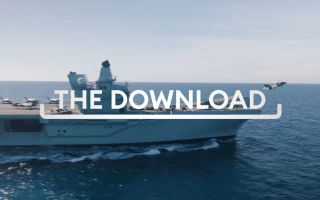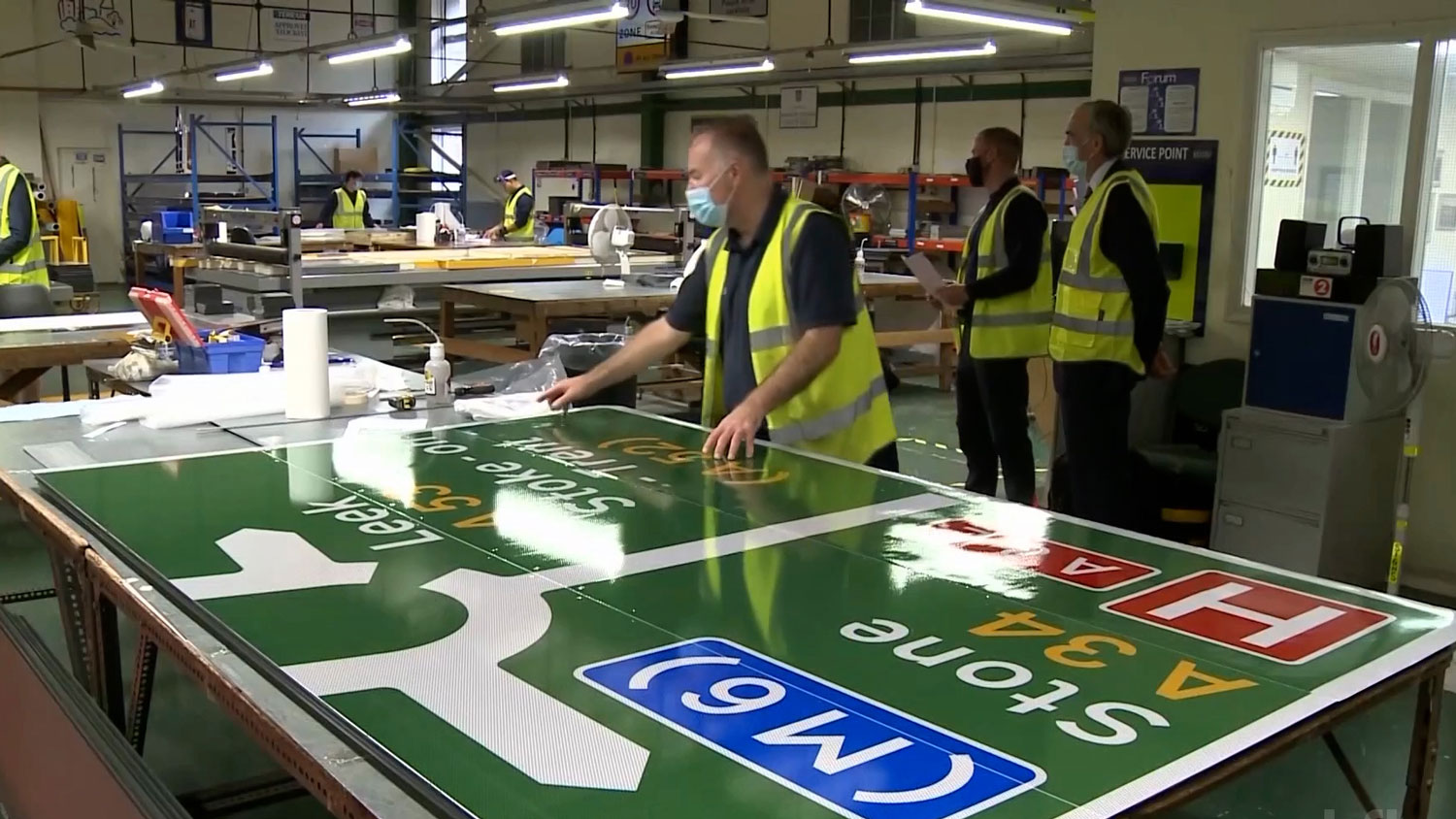
Did you know disabled veterans have made motorway signs since the 1960s?

Millions of motorists drive past countless motorway road signs every day but few may be aware that many of those signs across the country are made and designed by wounded service personnel as part of a national charity effort to support disabled veterans.
The next time anyone driving on the A51 sees a sign directing them to the M6 via the A34, those drivers might want to think about how that sign was made by an injured soldier, as part of the Royal British Legion Industries' work at the charity's own village, which nestles on the picturesque banks of the River Medway near Maidstone in Kent.
This is because military charity Royal British Legion Industries (RBLI) puts injured personnel to work manufacturing road signs as part of one of its projects to turn around the lives of veterans who have been injured or face other mental health issues following service to their country.
- The Royal British Legion at 100: How the RBL helped disabled veterans back to work after WWI
- New jobs 'passport' will ease path to civvy street for injured or disabled ex-military
- Veteran ID cards: All you need to know from application process to benefits and more
The same goes for rail passengers too.
The next time anyone whizzes through a station without the train stopping, it is worth knowing that the sign directing cars to wait for the train to pass might have not only helped them get to their destination on time but also given a wounded soldier a new chance in life.
The work helps give them a sense of purpose, employment and a way of getting their life back on track after whatever challenges they have faced after leaving the Armed Forces.
But why did disabled veterans start making road and rail signs in the first place and what did that have to do with a famous landscape architect?
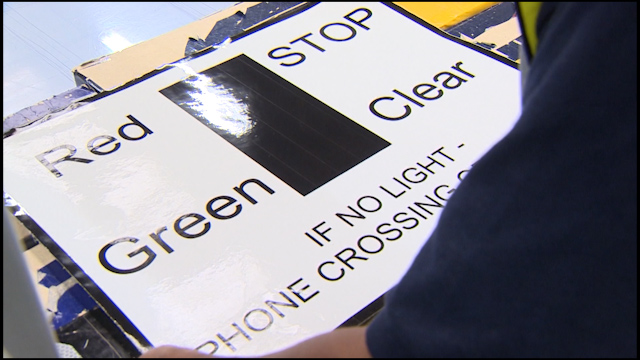
Why do disabled veterans make motorway signs?
After the First World War, one and three-quarter million physically and mentally wounded veterans returned home to a country without a National Health Service (NHS).
The nation would have to wait until 5 July 1948, for the NHS to be founded, by which time it had endured another brutal World War and felt the scars of conflict among its men, women and children as the German bombing of Britain brought the war to our shores and affected all genders and ages.
Originally founded under the name Industrial Settlements in 1919, Royal British Legion Industries established Preston Hall in Kent, as somewhere First World War veterans suffering from Tuberculosis (TB) could go to aid their respite and recovery.
After The Great War, an astonishing 55,000 men were discharged from service after being diagnosed with TB and because there was no NHS, veterans found themselves failing to get the treatment they needed to survive.
Just four years later, 18,000 had died.
The idea to create villages for veterans returning from The Great War was the brainchild of landscape architect Thomas Hayton Mawson whose son had died on the battlefield during the First World War.
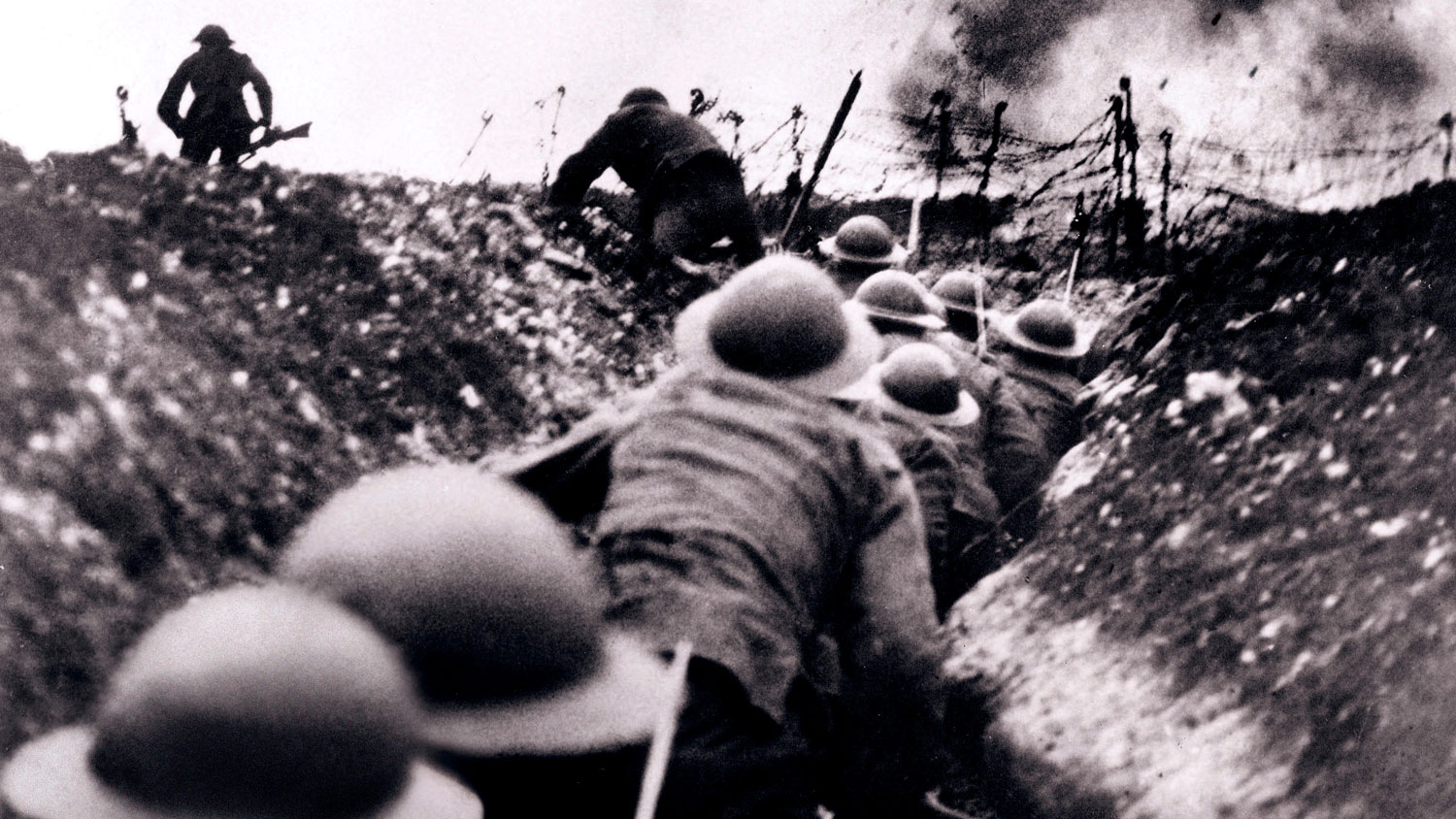
This inspired the influential garden designer to write the book An Imperial Obligation: Industrial Villages for Partially Disabled Soldiers & Sailors and use his contacts to encourage wealthy benefactors to financially support the establishment of Industrial Settlements at Preston Hall – a village of sorts where veterans could live, work and feel as though they were contributing to society as they had during the First World War.
Part of that work developed into manufacturing road signs in a dedicated factory.
More than a century later, RBLI’s ethos remains focused on community spirit.
Today the village is still in Aylesford, Kent and it provides housing and welfare to more than 300 members of the Armed Forces Community on its 75-acre estate.
This is through a range of emergency accommodation for veterans at risk of homelessness, family housing, assisted living accommodation and care homes.
RBLI's latest offering, Centenary Village, which consists of 40 new homes which offer assisted living, disability-adapted apartments and family homes, was officially opened by The Princess Royal on 20 October 2023.
The £22m development, near Maidstone, provides a range of homes, welfare support and a community for the country’s most vulnerable veterans.
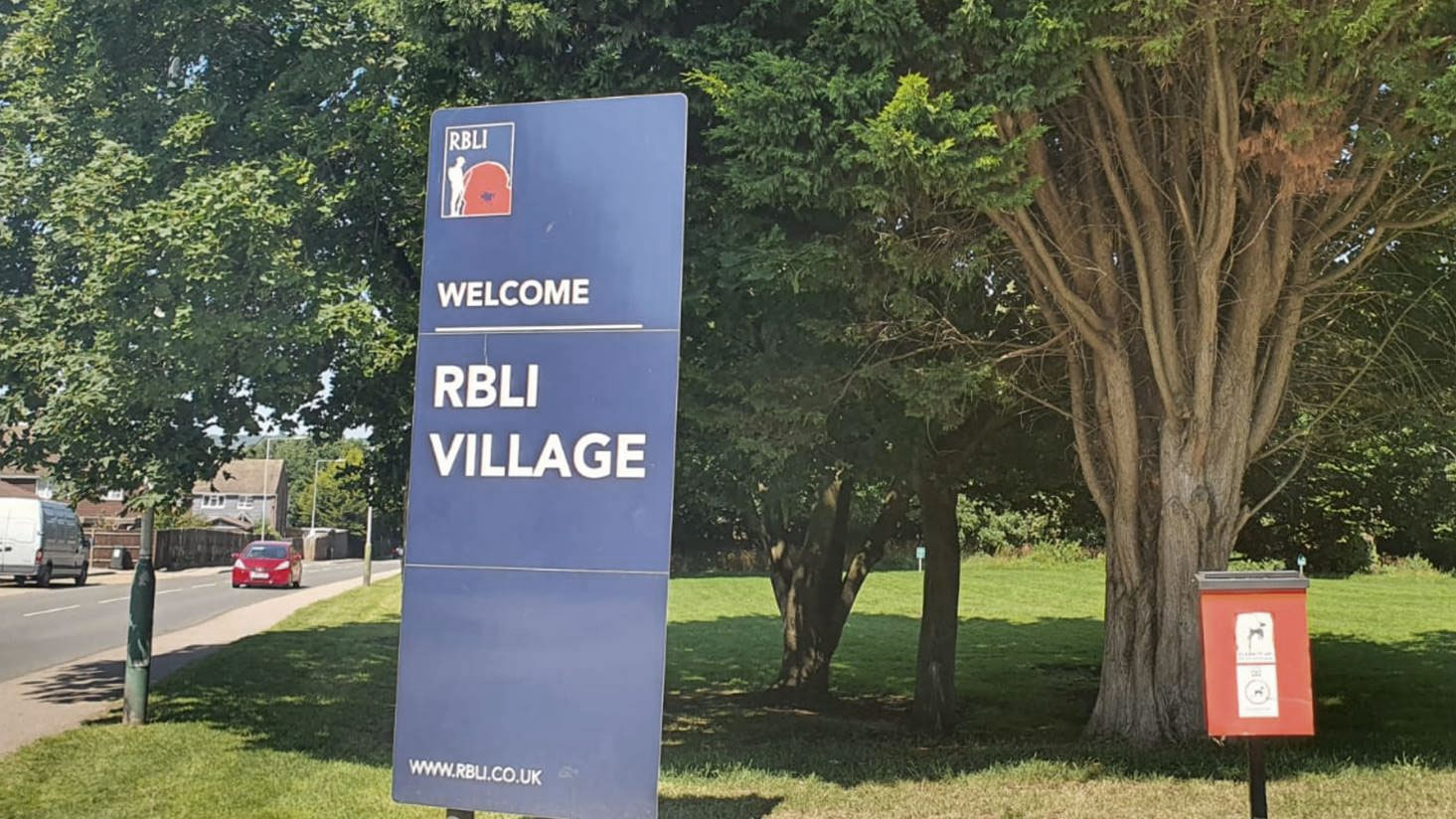
Which signs does the RBLI factory make?
The signs department of the factory opened its cutting-edge reflective signs department in 1964 with 136 disabled employees.
Half a century later, in 2016, the manufacturing division of Royal British Legion Industries rebranded as Britain's Bravest Manufacturing Company (BBMC) and is now responsible for four main areas:
- Road, Rail and Commercial Signs
- Wooden Products
- Fulfilment
- Print & Mail
Britain's Bravest Manufacturing Company is a social enterprise divided over two factories in Kent and Surrey which employs injured veterans who have a physical or mental injury such as amputation or post-traumatic stress disorder (PTSD).
BBMC secured a multi-million-pound contract in 2017 to become the sole provider of signs for Network Rail and today, they work with a large number of organisations from the public and private sectors such as Network Rail and Amey.
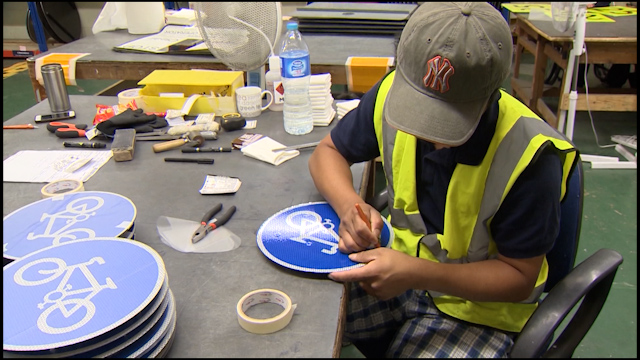
Contracts as big as that are down to the hard work and dedication of veterans like former Gurkha Rifleman Turthra Tapa who, in 2017, was part of the team making signs for Britain's Bravest Manufacturing Company.
The former soldier lost a leg when he stepped on an improvised explosive device (IED) in Afghanistan on Operation Herrick in 2010.
The veteran team he is part of makes tens of thousands of road and rail signs each year and is part of the wider company which employs more than 100 people - around 70 per cent of whom are ex-service personnel, have a disability, or both.
The veterans here credit working at BBMC for giving them a new purpose after serving their country.
As well as helping veterans transition onto civvy street, BBMC is a financial success, but all profits are put right back into the company to benefit veterans.
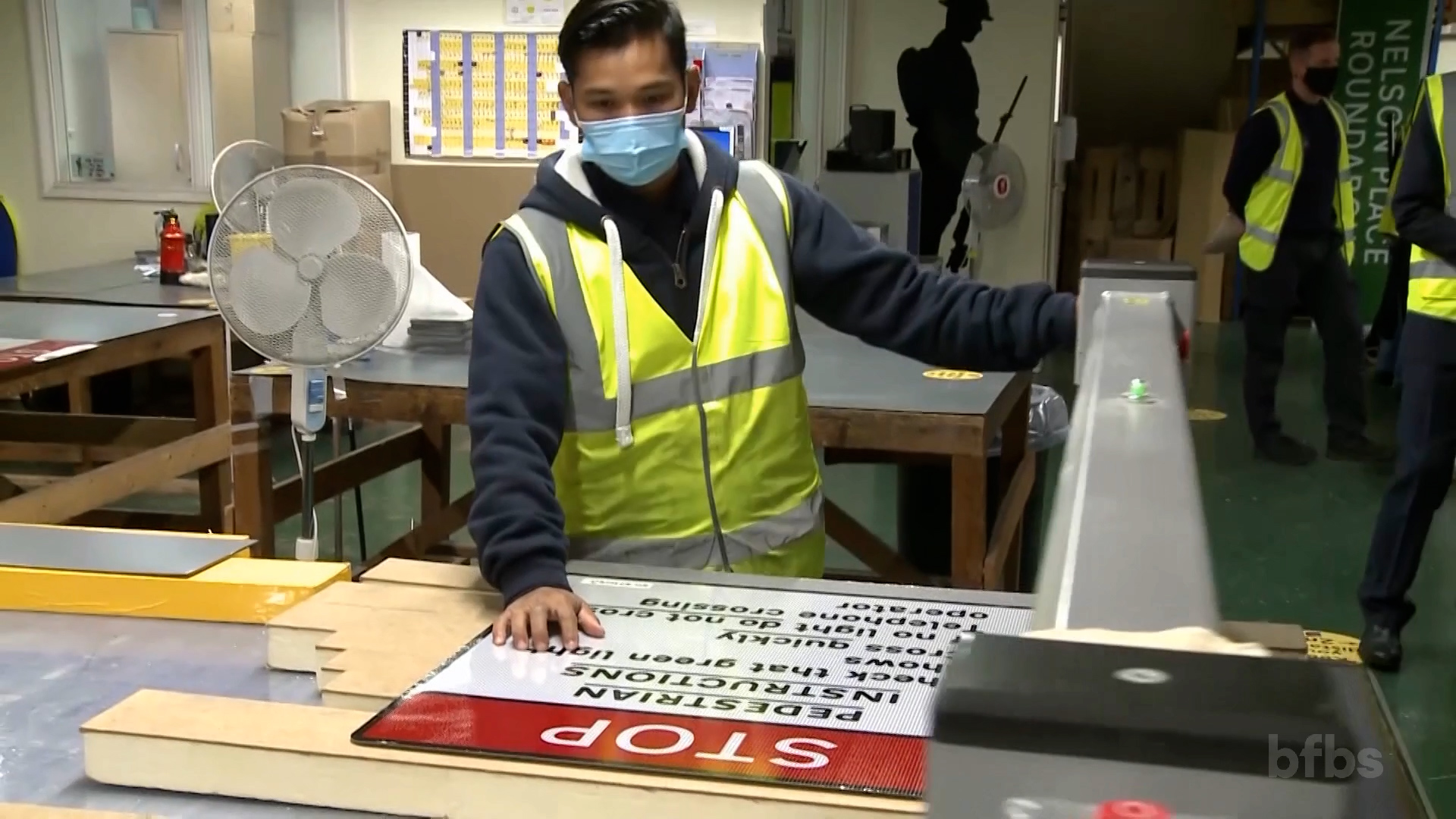
Is RBLI a branch of the RBL?
No. Even though Royal British Legion Industries and the Royal British Legion (RBL) almost share the same name, they are entirely separate charities.
While the RBL raise money through the Poppy Appeal, RBLI raises funds in different ways to deliver their own independent and unique services for veterans and their families.
For example, The Tommy Club is a way members of the public can give their support to veterans and raise vital funds for RBLI.
Tommy figures are made by veterans working for the RBLI and were first sold in 2018 to mark 100 years since the end of the First World War.
A campaign launched in 2020 saw the famous Tommy figure standing with a football under his foot in a nod to the Christmas truce of 1914.
England Captain Harry Kane is thrilled to be an ambassador for the charity. Speaking about his involvement with the RBLI in 2020, he said: "RBLI have supported military veterans for more than 100 years and I know the great work they do employing ex-servicemen and women and helping them overcome significant challenges."
While they are completely separate charities, both Royal British Legion Industries and the Royal British Legion have the same determination and focus on the health and wellbeing of armed forces veterans.
So, next time you see a motorway sign perhaps give a thought to the hundreds of veterans who make them.




